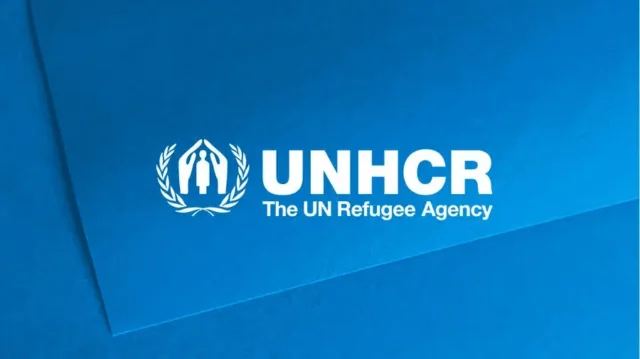
Habiba Shoaib, a community representative and internally displaced person from Sudan’s Blue Nile State. © UNHCR/Ala Kheir
Overall numbers rise to 120 million by May 2024; conflicts from Sudan to Gaza and Myanmar are creating new displacement and urgently require resolution
OTTAWA – The 2024 Global Trends Report from UNHCR, the UN Refugee Agency, reveals a historic surge in forced displacement worldwide, reaching 120 million by May 2024. As global conflicts escalate, the report underscores Canada’s critical role as a safe haven for refugees and asylum-seekers.
Globally, there were 3.6 million new individual asylum claims last year. In 2023, Canada received the fifth highest number of these claims. For context, some of the largest refugee hosting countries do not have an individual refugee status determination process like Canada’s. Instead, they grant refugee status to groups of people fleeing violence and persecution. The report also highlights that most refugees seek safety in countries neighbouring their own, with 75 per cent hosted in low and middle-income states.
“Although Canada’s distance from many of the world’s conflicts has meant fewer asylum claims in the past, the proliferation of war and violence is pushing higher numbers of people to seek safety,” said UNHCR Representative in Canada Rema Jamous Imseis.
“The solution is to be prepared and continue investing in Canada’s robust asylum system to ensure that it can protect those with legitimate claims and return those without.”
Last year, 72 per cent of asylum-seekers in Canada who had their cases reviewed were granted refugee status.
“We recognize that the increase in asylum claims is putting additional pressure on the system, but we are confident that Canada has the capacity and resilience to handle these pressures and that it will continue providing protection to those in need,” Jamous Imseis said.
The rise in overall forced displacement – to 120 million as of May 2024 – was the 12th consecutive annual increase and reflects both new and mutating conflicts and a failure to resolve long-standing crises.
A major driver of rising displacement numbers has been the conflict in Sudan, which has caused over 7.1 million new displacements since April 2023, with 1.9 million fleeing the country. In the Democratic Republic of the Congo and Myanmar, millions were displaced by vicious fighting. In Gaza, up to 1.7 million people were displaced by the catastrophic violence, with many fleeing multiple times. Syria remains the largest displacement crisis, with 13.8 million forcibly displaced in and outside the country.
“Behind these stark and rising numbers lie countless human tragedies. That suffering must galvanize the international community to act urgently to tackle the root causes of forced displacement,” said Filippo Grandi, the UN High Commissioner for Refugees. “It is high time for warring parties to respect the basic laws of war and international law. The fact is that without better cooperation and concerted efforts to address conflict, human rights violations and the climate crisis, displacement figures will keep rising, bringing fresh misery and costly humanitarian responses.”
The largest increase in displacement figures came from people fleeing conflict who remain in their own country, rising to 68.3 million people, according to the Internal Displacement Monitoring Centre – up almost 50 per cent over five years.
The number of refugees, and others in need of international protection, climbed to 43.4 million when including those under UNHCR and UNRWA’s mandates.
The report showed that worldwide, more than 5 million internally displaced people and 1 million refugees returned home in 2023. These figures show some progress towards longer-term solutions. Positively, resettlement arrivals increased to almost 160,000 in 2023, with Canada receiving 51,100 resettled refugees.
“Refugees – and the communities hosting them – need solidarity and a helping hand. They can and do contribute to societies when they are included,” Grandi added. “Equally, last year millions of people returned home, representing an important glimmer of hope. Solutions are out there – we’ve seen countries like Kenya lead the way in refugee inclusion – but it takes real commitment.”
ENDS
For more information:
- In Ottawa, Levon Sevunts, sevunts@unhcr.org, +1 613 286 6975
- In Geneva, Matthew Saltmarsh, saltmars@unhcr.org, +41 79 967 99 36
- In Geneva, Shabia Mantoo, mantoo@unhcr.org, +41 79 337 7650
- In Geneva, Babar Baloch, baloch@unhcr.org, +41 79 513 95 49
- In Geneva, William Spindler, spindler@unhcr.org, +41 79 549 59 98
- In Geneva, Olga Sarrado, sarrado@unhcr.org, +41 797 402 307
To find additional spokespeople not listed here, visit our media centre.




